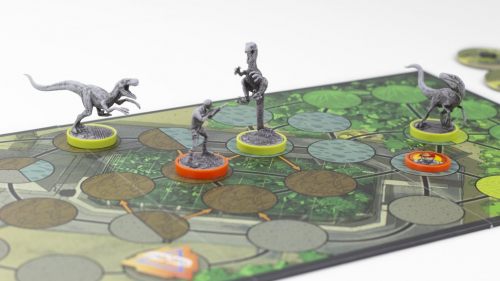Board Game Review: 7 WONDERS DUEL
They say Rome wasn’t built in a day. Well they don’t know what they’re talking about because in 7 Wonders Duel you can build two competing Romes in less than an hour. I’ve said it before and I’ll say it again: do not listen to historians.
I come to 7 Wonders Duel without any experience playing the regular old 7 Wonders game, from which this is spun off. The original has a great reputation but the themes don’t strongly appeal to me. I suppose that is also true of 7 Wonders Duel. The difference here is I especially adore two-player games and 7 Wonders Duel frequently tops lists of the best two-player games out there. Considering that and its lower price tag, I was much more inclined to give it a shot.
And shoot I did. Over Christmas break, I must have played 7 Wonders Duel a thousand times (mild exaggeration employed). As an illustration of the game’s appeal and ease, I played all those games with either my nephew (who might be 10, I’m not super sure) and my dad (who might be 65, I’m also not super sure). If three generations of Saathoffs can learn to play this one, you can too.
Basically, you start the game by setting up a pyramid of cards - some you can see, others you’ll have to reveal later. You and your opponent take turns snagging a card. At its absolute most simple, this is how 7 Wonders Duel works. When the cards are exhausted, you enter the second age and make a different pyramid. When those cards are exhausted, you begin the third age with a different, non-pyramid shape. When those cards are gone, the game is over and you add up points to see who won.
Unless a military or science victory was achieved before you get that far, in which case points are irrelevant. Part of 7 Wonders Duel’s beauty is its multiple paths to success, which you must decide on early and will greatly alter how you pick your cards. There is a true freedom to saying “the hell with all these points, I’m just going to go full bore on military power”, even if it ultimately ends up costing you the game.

The game’s excitement is all about the cards you pick - or the cards you keep from your opponents. The first age is mostly about collecting building materials. Cards will give you wood, for instance, or stone, or glass or paper… all items you will need to build more complicated structures and Wonders later, which in turn offer items and rewards and so on. You are always building so you can build more. If you lack a needed material, it’s going to cost you, and money can be hard to earn. So stock up early!
The duel aspect of the game is always in full effect. You may pick a card that serves your own self interest, but you are just as likely to pick one to aggressively screw over your opponent. And don’t forget the cards you can’t see. If your move uncovers any, your opponent will be able to snag one before you get a chance. Maybe you take something less valuable that forces the other player to uncover those cards, leaving you free to see them first and take whichever one helps you most. Maybe your opponent is gearing up for a military win, and you need to keep military cards out of their hands as much as possible. A whole lot goes into each card-drawing decision, and this mechanic offers the game’s core appeal.
Also very appealing: 7 Wonders Duel’s length. This is not going to take a long time to get through once you get going. I found immediate rematches quite common. As such, my journey from someone who had never played this game to seasoned pro happened in almost no time at all. It’d put this up with Jaipur in terms of greatness versus effort. This one is slightly more complicated due to all the different pieces, but you’re in for a whole lot of fun with these two games hidden in your bag.

If you’ve ever played the game Splendor, much of 7 Wonders Duel will be familiar. In both games, you save up items that make it easier to purchase more items later, with hopes of being able to afford the game’s biggest items (Wonders in this case), while also competing FOR those items. It’s an easy situation to get caught up in. I prefer 7 Wonders Duel for its different pathways to success and variety overall. With Splendor, which I do enjoy, the whole thing is just different-colored jewels; 7 Wonders tasks you with building an entire civilization over three ages. You get a rock quarry so your great grandchildren can enjoy the theater. Or maybe you say the hell with arts and make everyone in your empire a soldier or scientist.
In short, there is a reason so many people adore this game. Overall, I prefer two player games that are complicated, intense and super long, but I also find partners for those games very hard to find. For casual gamers, 7 Wonders Duel is an easy setup that’ll have your opponent asking to play again and again. And you’ll probably be happy to oblige.



